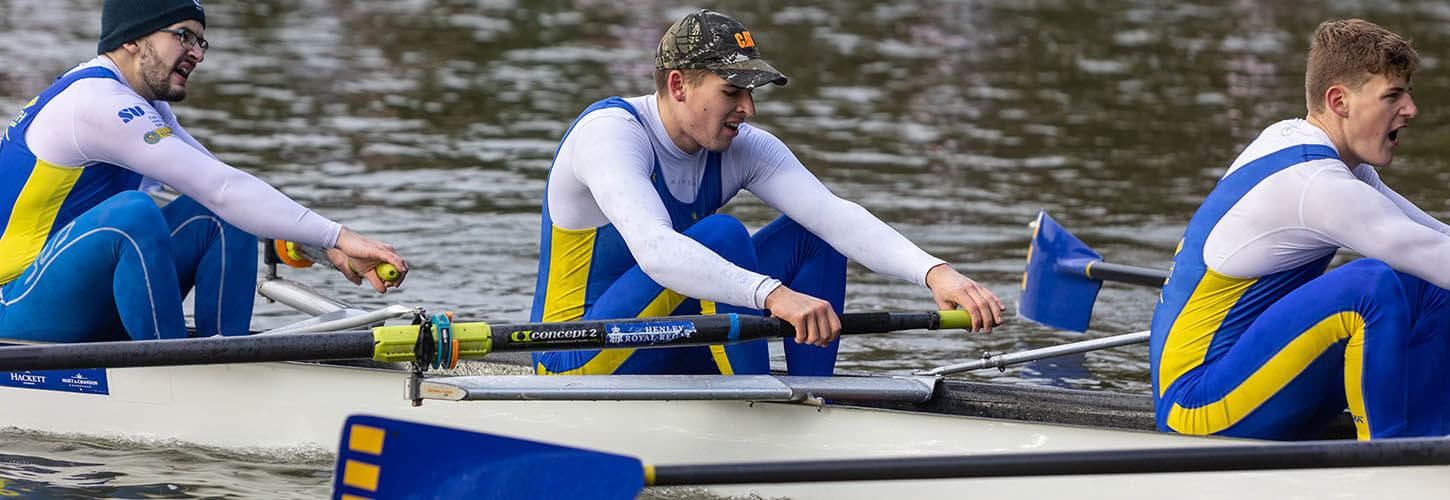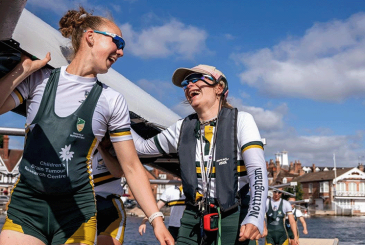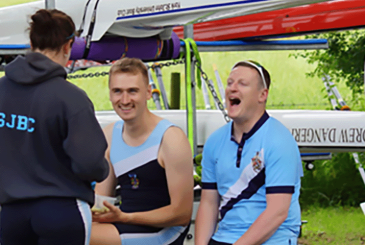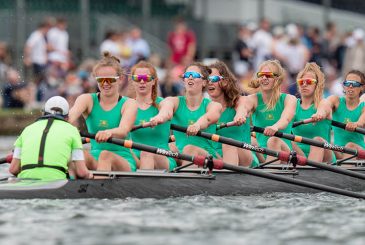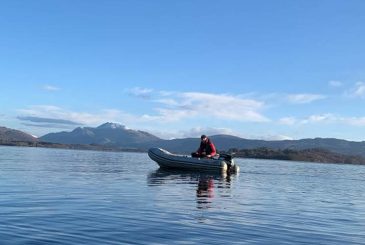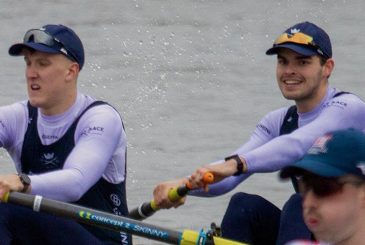University rowing careers are, by nature short. So can you make it to the top in just three or four years from a standing start, or do all of the first boat places inevitably go to those who rowed as juniors?Alannah Burdess from JRN spoke to athletes from three university boat clubs to find out just how possible making it in a university squad is if you only learn to row when you get there.

Scaling the mountain
All of these athletes have made it into their university first eights despite only picking up rowing as students. This was no mean feat when you consider how high each club placed in the 2022 BUCS Victor Ludorum table: Edinburgh University BC (EUBC) took the top spot; Durham University BC (DUBC) were fourth; and Newcastle University BC (NUBC) came in sixth. These individuals are proof that you absolutely do not need to have previous rowing experience to make it to the very top of your university squad.
“I’ve been at NUBC for nine years now and have seen so many novices progress to the first eight that it’s hard to keep track,” explained Katherine. “It isn’t an easy route and there‘s always plenty of competition, but it is very achievable. Everyone has to start somewhere so there’s no reason why it shouldn’t be at university.”
The need for hard work
You might be thinking that these athletes are more or less the only former novices in UK university first eights, but that is certainly not the case. Nor is it true that these rowers are all naturally very able with the perfect physiology and technical ability to make it. If one thing was clear from our conversations, they all worked incredibly hard. Granted, Phillipa admitted that she’s physiologically gifted and Katherine came in with previous competitive sporting experience that was definitely to their advantage, but Mia had never stepped foot in a weights gym before she picked up rowing and struggled to adapt to the strength element.
Andrew very honestly acknowledged that it took him some time to get the hang of technique. “Even after a month of sweep rowing, I had to sit on the pontoon with my coach to be shown body position,” he remembers. The importance of learning technique came up often. Phillipa conceded that it was the toughest element of rowing for her to assimilate, modestly stating, “I spent all of last year trying to get a catch in, and I finally got it just before Henley Women’s. That landed me a spot in the first eight for Henley Royal Regatta!”
Climbing faster
These five athletes prove that it is feasible to make it into a university first eight as a student novice, but is there any way to fast track that progress? Holly Young, Assistant Coach at DUBC, is responsible for oversight of their Learn to Row programme and novice squad. Her top tip for ambitious rowers was to come into the sport with good basic cardiovascular fitness and really good physical literacy, alongside an “understanding of how to move your body effectively and efficiently”.
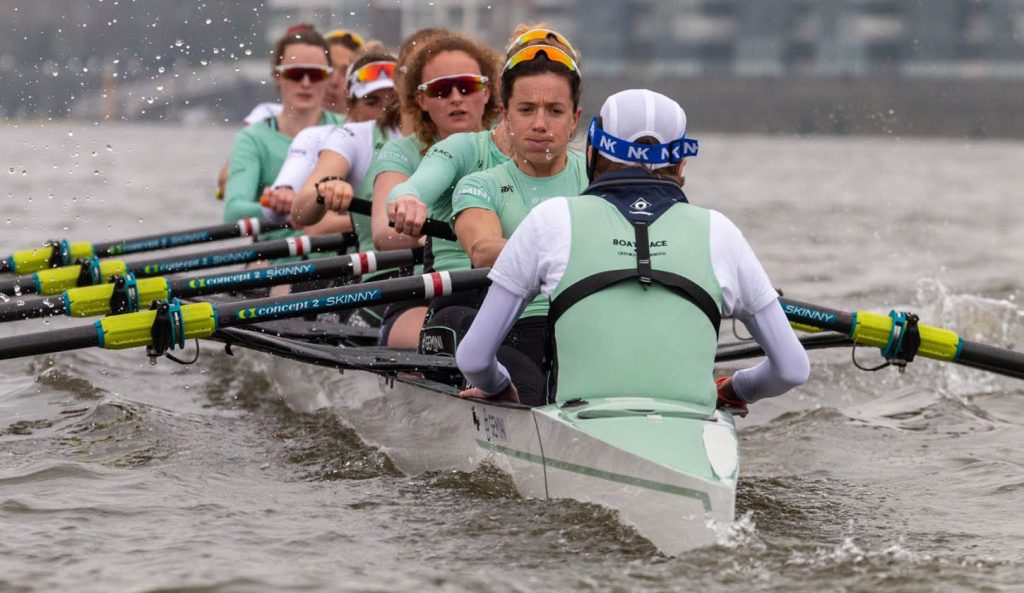
Three key pieces of advice from the rowers themselves stood out. Phillipa stressed consistency. Not only is this crucial to developing fitness and strength, but food and recovery habits are “the most important thing in terms of surviving the endurance and intensity”.
“Eat enough, and rest enough. Taking care of yourself will have major benefits,” said Mia, while Andrew recommended learning from your crewmates. Although being surrounded by people who have been rowing for many more years than you is daunting, these rowers have a wealth of knowledge and experience. “People will give you unsolicited advice. Sometimes it’s complete rubbish but sometimes there’s a nugget of gold. Don’t be discouraged if you’re constantly being given feedback,” he added.
Back of the starting pack
As a former novice compete for a place in the top boats, you’re up against athletes who rowed as juniors. Whether they learned at a club or a school, they’ve had years of coaching, water time, and racing experience. Progression rates from novice programmes to the top two eights demonstrate that there is certainly an advantage here. Andrew is the only member of his novice cohort in the EUC men’s first eight, while Phillipa is one of only three novices in the DUBC senior squad of 24 rowers.
“As a newcomer, you are hungrier for it.”
Nevertheless, as Mia pointed out, being a newcomer to the sport can have its advantages. One is when it comes to winning seat races against heavier, more experienced athletes. “As a newcomer, you are hungrier for it. That gives you an edge over the athletes who’ve been in the sport for longer. I picked up the technique and had the stubbornness to just keep going,” she commented.
The beauty of rowing is that it attracts so many different people. Holly said that, as a coach, above all she looks for the right personalities. “For me it’s about the person,” she explained. “Do they fall in love with the sport? Are they really motivated? Are they really engaged with the process? Sometimes you do get those traits with someone whose physiology fits the bill but sometimes you get it in the ‘wild cards’. It’s important to find the right people as well as finding the correct physical traits.”
Conclusion
As a former novice who only picked up coxing at university, I can assure you that rowing competitively at university level and beyond does not require you to have got in a boat before fresher’s week. What’s clear from these athletes, though, is that such success requires determination, dedication and a willingness to put pain before gain for the sport you love.
Photos: Aaron Sims, Ed Evans, AllMarkOne.


